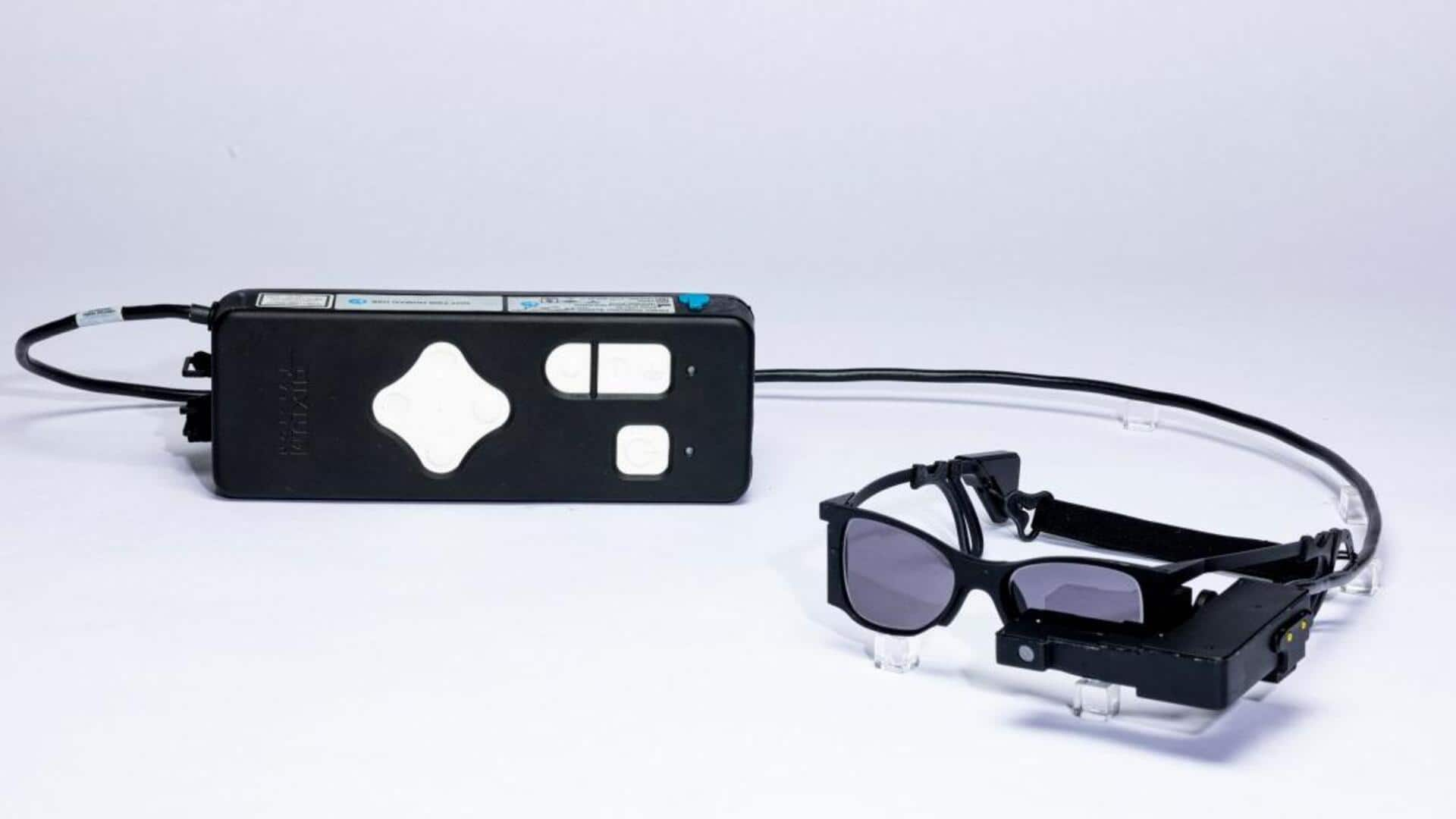
This innovative eye implant is helping blind people see
What's the story
In a groundbreaking development, a group of patients suffering from age-related macular degeneration (AMD) have regained partial vision. The improvement came from an innovative eye implant that works with smart glasses. The study was published in The New England Journal of Medicine and showed that the technology was effective enough for participants to read books and solve crossword puzzles.
Technology
How the device works
AMD is an irreversible condition where cells in the center of patients' retinas gradually die. The study attempted to restore some of this lost vision with a 2x2mm device made from tiny photovoltaic solar panels. This device was surgically implanted under the retina in each patient's eye. The participants wore camera-equipped smart glasses that sent zoomed-in images to the retinal implant via near-infrared light, which then mimicked retinal cell activity to send signals to the optic nerve.
Success rate
80% of patients saw improvement in vision
The clinical trial began with 38 patients who received the retinal implant, out of which 32 completed a year-long study. At the end of this period, 26 participants (80% success rate) could see better than before. However, it's worth noting that the technology only provides a blurry black-and-white vision of the world. Despite its limitations, researchers not involved in this study have praised it as "amazing," according to The New York Times.
Development history
Implant technology was acquired by Science Corporation in 2024
The revolutionary tech was developed by Science Corporation, a brain-computer interface company founded by Max Hodak, who co-founded Neuralink with Elon Musk in 2016. In 2024, Science Corporation acquired the retinal implant technology from French medical device firm Pixium Vision after it ran out of funds. This acquisition has allowed the clinical trial to continue and could pave the way for further advancements in vision restoration technologies.